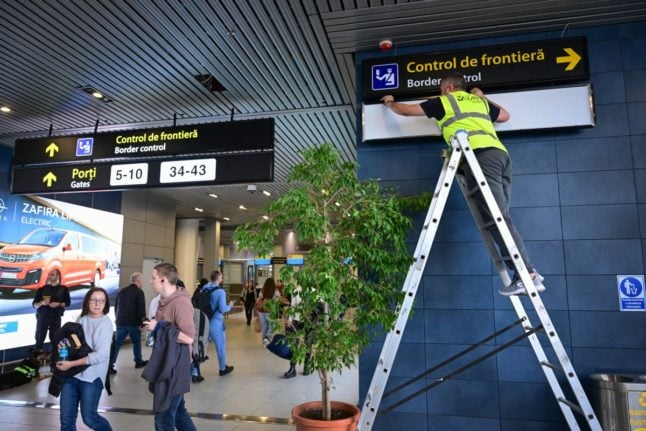'No deal is one moment. But the next day goods will need to be exchanged, people will move, research will be done, security data will have to be exchanged, so the no-deal moment won't last forever,” said France's Europe Minister Amelie de Montchalin, speaking in Paris.
“This future relationship will have to be organised quickly, this is why we all thought it was very wise to have a transition period to organise such a future relationship.
“So the assessment of the economic impact depends a lot on the nature of the future relationship . . . but there will be a future relationship.
“Here in France we have always respected the fact that this was a choice made by the British people.”
But she added that there would be no bilateral 'mini deals' done before Brexit.
She was speaking after a meeting in Paris of the 27 EU ambassadors on the subject of preparations for Brexit.
READ ALSO

Tens of thousands of lorries pass between France and the UK every day. Photo: AFP
France and Ireland, as the two closest neighbours of the UK, will potentially be the countries most affected by Britain leaving the EU.
France has stepped up its no-deal preparations in recent weeks with hundreds of new border and customs staff already in post and testing systems to be used in the case of a no-deal Brexit.
The Europe Minister told journalists that France would be using as much technology as possible to create an “intelligent border” between the two countries.
Number plate recognition technology, barcodes and facial recognition will be used to make border crossings as smooth as possible, particularly for businesses, and France is sharing technical solutions with Ireland.
There are around five million trucks a year passing through the borders between the UK and France and authorities in northern France have been working on a “crisis management plan” in case of a no-deal Brexit for almost a year now.
France's Prime Minister also announced on Monday a new website would go live in October to allow British people already living in France to apply for their carte de séjour residency permit online.
France's official position is still that it is hoping for a deal but is making contingency plans for a no-deal and De Montchalin said that France still wants to have a close and “special” relationship with the UK after Brexit.
But on the issue of any further extension to Brexit, she stressed that it would have to be discussed in Europe – but only if the UK makes the request first.
She said: “It's not a wedding, but we still have to be asked.
“The only person who can make a request is the person who represents the UK at the table at the European Commission. Governments talk to the Commission – there is no such thing as parliament asking for an extension.”
She added that France had repeatedly said that there would need to be a change of circumstances in the UK – such as a new government or fresh elections – for an extension to be considered, saying: “diluting a very complex problem in time does not make it less complex”.
Britain is currently scheduled to leave the EU on October 31st.
Although a majority in the British parliament has made it clear it does not want to leave without a deal by passing a motion blocking a no-deal exit, the country's Prime Minister Boris Johnson said he would rather be “dead in a ditch” than request a third extension from the EU.



 Please whitelist us to continue reading.
Please whitelist us to continue reading.
A sensible lady. It’s a great pity that the court jester hasn’t similar people in his cabinet.